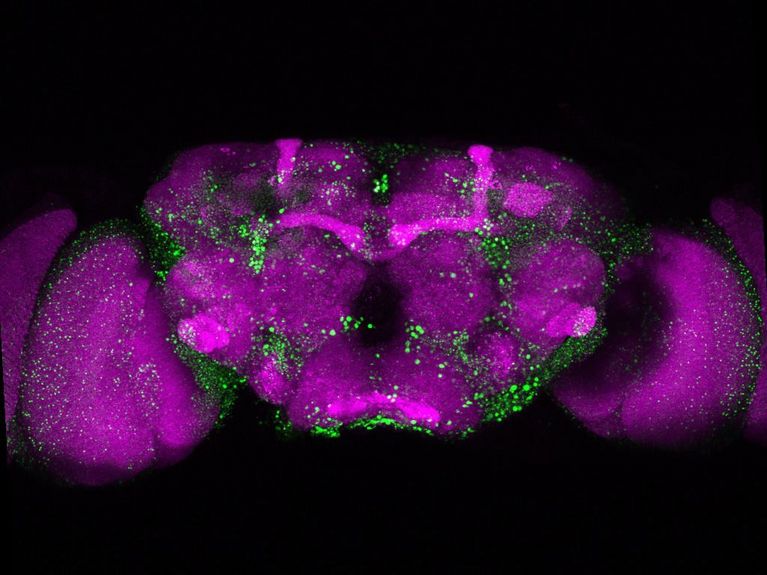Challenge #160

How Huntington's disease develops in the brain and how it could be stopped is being investigated by scientists at the Max Delbrück Center using a popular research model: The fruit fly.
Life with Huntington's disease can continue normally for decades, then the affected person progressively loses control over their body, muscles and thoughts. This is because nerve cells in the brain continue to die until the end of life. We are investigating the interaction of proteins in the course of this hereditary disease. How, when and under what conditions do they influence each other? If misfolded proteins stick together, nerve cells no longer perform important tasks, and networks of brain function are disrupted. In fruit flies, we can detect such protein clumps long before nerve cells die. This supports our hypothesis: We suspect that they trigger Huntington's disease.
Our basic research is the foundation for future therapies in humans: If we induce the clumping by genetic engineering, the fly's lifespan will be dramatically shortened. With pharmaceutical agents, we can slow down this process and save the fly's life. We are using artificial intelligence to find out which signaling pathways we need to target for this.
Image: Franziska Schindler/MDC
Readers comments